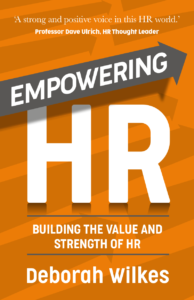Adapting to the new multi-generational workforce
The modern workforce is in a constant state of evolution and adaptation. From the baby boomers to Generation Y, previous generations have had their own unique needs and challenges in the workplace. However, the emergence of Generation Z, the first truly digital-native generation, has presented a new and unique set of challenges and opportunities for businesses across all sectors.
When you add older workers into the mix, many organisations have had their most varied workforce profile for decades. The complexity of employee needs and the talent market has moved up a gear.
The pandemic has forced businesses to embrace remote work and flexible working arrangements, with work-life balance crucial to employee engagement and satisfaction – for every generation.
Adapting to the new multi-generational workforce will be a key challenge and opportunity for businesses across all sectors. HR has a crucial role to play in driving this change and supporting the needs and expectations of the current workforce. By understanding the unique challenges and opportunities of the new generational workforce, businesses can drive growth and innovation, attract and retain top talent, and remain competitive in an ever-changing business landscape.
The role of HR in adapting to the multi-generational challenge
Wilkes (2021) states, “Research into generation changes shows that younger people want to exercise much more choice and control and won’t be pushed around. This also applies to when they choose to work. For them, the line between work and leisure is blurred: they expect to keep in touch with their lives on social media during the day and don’t mind dipping into work outside official hours“. So how does an HR team manage this shift in work ethics whilst maintaining key relationships with other key players in the team that are of a different generation?
HR has a crucial role to play in supporting the adaptation to the new generational workforce and driving change in the workplace. HR can help to build a culture of openness and flexibility that encourages new ideas, values, and perspectives. They can also ensure that job descriptions and career growth opportunities are tailored to meet the needs and expectations of the current workforce.
HR can work with business owners and senior management to develop a management style that recognises the unique challenges and opportunities presented by the multigenerational workforce. They can also play a key role in reducing age discrimination and resistance to change while fostering employee satisfaction and engagement.
Understanding the diverse generations in the workplace
Generation Z
The Generation Z workforce is different from previous generations, with unique attitudes towards work, communication, and technology. As the COVID-19 pandemic has driven remote work and workplace adaptation, this generation’s flexible and digital native approach has come to the forefront. Employers must understand the needs and values of Gen Zers to maintain employee engagement, job satisfaction, and career growth, while HR can play a crucial role in facilitating these changes and helping other generations adapt to the new way of working.
Generation Y (Millennials)
Generation Y, also known as Millennials, have been advancing through their careers with different needs and expectations than previous generations. With an emphasis on work-life balance, employee engagement, and career growth, they represent a new generational workforce that demands flexibility, accountability, and purposeful work. It’s essential for HR to understand these characteristics and adapt their management style to support this workforce while collectively adapting to change and overcoming challenges.
Baby boomers and beyond
The Baby Boomer generation and those who came before them have been prominent in the workforce for many years. These employees often have different values and preferences than younger generations, including a desire for stability and a traditional work environment. However, as businesses continue to adapt to the digital age and the COVID-19 pandemic, Baby Boomers and older workers are facing new challenges and must learn to adapt to change to remain competitive in the workforce.
Strengths and benefits of a multi-generational workforce
In today’s fast-paced business environment, having a multigenerational workforce can provide a wealth of benefits for organisations. With different generations, such as Baby Boomers, Generation X, Millennials, and Generation Z, working together, companies can leverage unique perspectives, knowledge transfer, and retention, fostering problem-solving abilities and creating a unique work culture that benefits all generations.
Diversity of perspectives: A multigenerational workforce brings employees from different age groups, offering varied viewpoints and opening new perspectives and ways of thinking.
Stimulates fresh ideas: A multigenerational workforce effectively promotes creativity and innovation and improves problem-solving by incorporating diverse ideas and approaches.
Knowledge transfer and skills development: Working with older generations allows younger employees to learn from their experience, benefiting their long-term growth and strengthening the organisation’s capabilities. Some organisations have adopted ‘upwards mentoring’ – where younger, tech-savvy people can offer their perspective to older colleagues.
Unique relationship building: Interactions between different age groups foster learning and development. Younger employees can gain specialised skills from seasoned workers, while experienced workers can embrace new technologies and collaborate with younger colleagues.
Contribution to business goals: Optimising a multigenerational workforce through learning and mentoring opportunities empowers younger employees to understand the organisation better, while experienced workers provide valuable insights and market knowledge.
Building a cohesive culture: Relationships formed within a multigenerational workforce enhance workplace enrichment and job satisfaction and contribute to a positive work culture that values inclusion, knowledge sharing, and problem-solving.
Leveraging unique perspectives: Organisations that embrace a multigenerational workforce can leverage each generation’s diverse perspectives, experiences, and strengths to create a workplace environment that benefits all generations.
Reflecting their market and community: The mix of generations is another rich source of diversity which enables organisations to understand their customers and stakeholders.
It is clear that a multigenerational workforce has advantages beyond business growth and innovation. It provides an opportunity to build a work culture that promotes inclusion, knowledge sharing, positive relationships and problem-solving. Organisations that embrace the strengths and benefits of a multigenerational workforce can leverage unique perspectives, experiences, and strengths to create a workplace that benefits all generations.
This may also interest you:
How clear is the way ahead really?
UK workplace culture campaign: HRZone ExploreChange movement
What’s your perfect image of successful and rewarding partnering?
Undertake in-depth employee research with Enable-HR
Before you can begin to make positive changes within the workplace that appeal to the strengths and benefits of a multigenerational workforce, it is important to understand the team dynamics, concerns, motivations, and engagement triggers that affect their well-being and performance.
HR has a vital role to play in creating a workplace culture that values career growth and development, fosters employee satisfaction, and encourages open communication and collaboration, thus driving profitability.
As businesses navigate the challenges ahead, adapting to the needs and expectations of the new generational workforce will be essential to attract and retain top talent, drive growth and innovation, and remain competitive in a rapidly changing business landscape.
With our extensive experience and in-depth understanding of employee research, Enable-HR International provides invaluable insights to enhance performance, recruitment, retention, and training. By utilising our expertise, managers and HR professionals gain a competitive edge and excel in their roles, ensuring the success of their departments and organisations.
Enable-HR combines employee surveying and web-based technology to deliver tailored research solutions that precisely meet the needs of each company, customising surveys and reporting approaches to align with specific commercial objectives. Our tried and tested approaches provide a comprehensive understanding of how employees connect with their work, fostering fulfilment and driving long-term business success.
At the core of Enable-HR’s research capabilities is our secure online platform, ‘Career Insight.’ This platform serves as a central hub for continuous employee opinion data, facilitating secure surveying, collation, and presentation of valuable insights. With its user-friendly interface and scalability, ‘Career Insight’ streamlines the research process, making it easy for organisations to gather and analyse data. By harnessing the power of this platform, Enable-HR empowers companies to unlock a wealth of information about their workforce, enabling them to make informed decisions and drive positive change throughout employees’ entire careers.


